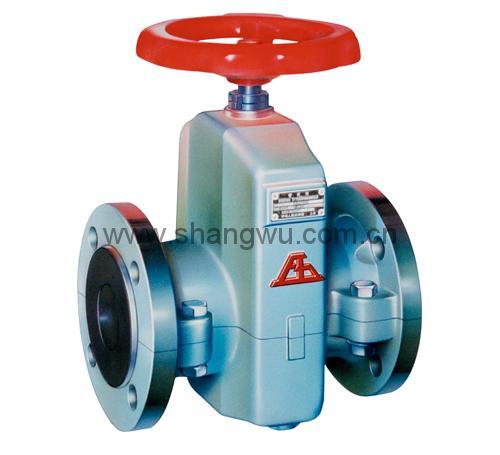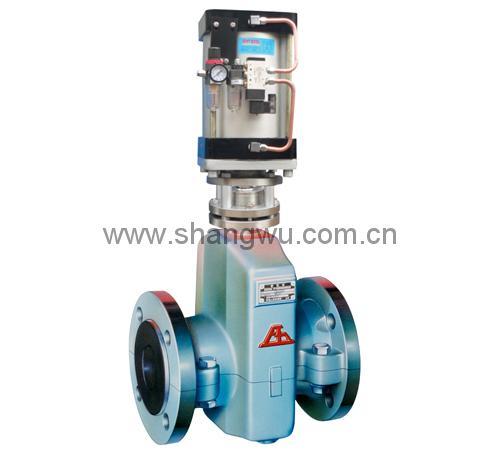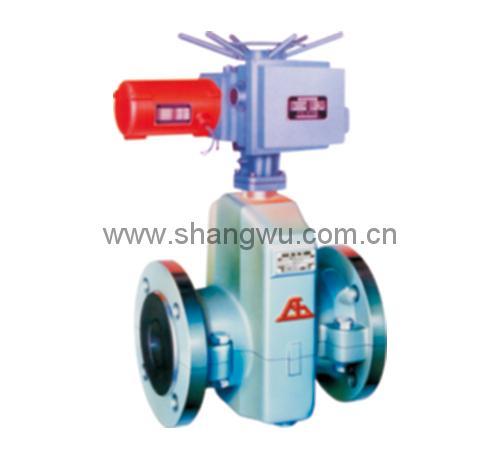
News Center
Corrosion-resistant valve
Categories: Valve knowledge
Time of issue:2013-05-08 14:32
1As one of the strong corrosion media, sulfuric acid is an important industrial raw material with a wide range of uses. Different concentrations and temperatures of sulfuric acid on the corrosion of the material difference is greater for the concentration of 80%.Above, the temperature is less than 80 ℃ sulfuric acid and carbon steel cast iron have better corrosion resistance, but it is suitable for high-speed flowing sulfuric acid and is not suitable for pump materials. Ordinary stainless steel, such as 304 0Cr18Ni9, 316 0Cr18Ni12Mo2Ti, is also of limited use for sulfuric acid media. Therefore, the pump valve for conveying sulfuric acid is usually made of high silicon cast iron with high difficulty in casting and machining, high alloy stainless steel No. 20. Fluoroplastics have better resistance to sulfuric acid. F46 is a more economical choice. If the pressure is too high and the temperature rises, the use point of the plastic valve will be impacted. You can only choose a ceramic ball valve that is more expensive than it.
2Most metal materials are not resistant to hydrochloric acid corrosion, including all kinds of stainless steel materials, and molybdenum-containing high silicon iron can only be used for 50℃, below 30% hydrochloric acid. Contrary to metal materials, most non-metal materials have good corrosion resistance to hydrochloric acid, so lined rubber pumps and plastic pumps such as polypropylene, fluoroplastics, etc. are the best choice for conveying hydrochloric acid. However, if the temperature of such a medium exceeds 150 ℃ or the pressure is greater than 16kg, any plastic including polypropylene, fluoroplastic or even polytetrafluoroethylene will not be able to do the job. at present, there is no ideal valve on the market. however, you can try the new ceramic ball valve. the advantage of this valve is self-lubricating, the torque force is small, and the life span is much longer than that of ordinary valves. The price is much higher than the plastic valve.
3.Nitric acid medium in general metal is mostly in nitric acid is rapidly corroded and destroyed. Stainless steel is the most widely used nitric acid resistant material.The corrosion resistance of 316L to nitric acid is not better than that of ordinary stainless steel, such as 304, 321, and sometimes even worse. For high temperature nitric acid, titanium and titanium alloy materials are usually used.
4.Acetic acid medium, it is one of the most corrosive substances in organic acids, ordinary steel in all concentrations and temperatures of acetic acid will seriously corrode stainless steel is excellent resistance to acetic acid material containing molybdenum 316Stainless steel can also be applied to high temperature and dilute acetic acid vapor. High alloy stainless steel or fluorine pump can be used for high temperature and high concentration acetic acid or other corrosive media.
5 \5 5.Alkali plating sodium hydroxide plating steel widely used in 80Below degrees C, 30% sodium hydroxide solution also has many petrochemical plants at 100 degrees C, below 75 still use the concentration of ordinary steel% corrosion although increased but good economy. The corrosion resistance of ordinary stainless steel to lye has no obvious advantage compared with cast iron. As long as a small amount of iron is allowed to be mixed into the medium, it is not recommend to use stainless steel. For high temperature lye, titanium and titanium alloy or high alloy stainless steel are used.
6.Most metals and non-metals corrode slightly in liquid ammonia and ammonia hydroxide. Only copper and copper alloys should not be used.
7The corrosion resistance of most metal valves to chlorine is very limited, especially in the case of chlorine gas with water, including various alloy valves, in this case, tetrafluoro valves are a good choice, but chemical factories that produce chlorine alkali will find that the problem of tetrafluoro aging will be highlighted if the time used for tetrafluoro valves is slightly longer and the torque force increases. It is deadly. It can be considered to replace the original ordinary PTFE valve with PTFE-lined ceramic ball core. It will have perfect effect by using the self-lubricating property of ceramic and the corrosion resistance of PTFE.
8、.The corrosion rate of ordinary steel in sodium chloride solution and seawater and salty water is not too high. Generally, it is necessary to protect all kinds of stainless steel with paint. It also has a very low uniform corrosion rate, but it may cause local corrosion due to chloride ions. Generally, it is better to use 316 stainless steel.
9、.Alcohols, ketones, esters, ethers, etc. Common alcohol media include methanol, ethanol, ethylene glycol, propanol, etc. Ketone media include acetone, butanone, etc. Ether media such as ethyl ester include methyl ether, ethyl ether, butyl ether, etc. They are basically not corrosive. Common materials can be applied. Specific selection should also be made according to the properties of the medium and relevant requirements. It is also worth noting that ketones, esters, and ethers are soluble in a variety of rubbers. Avoid making mistakes when choosing sealing materials.
Pre: Nuclear power valve



